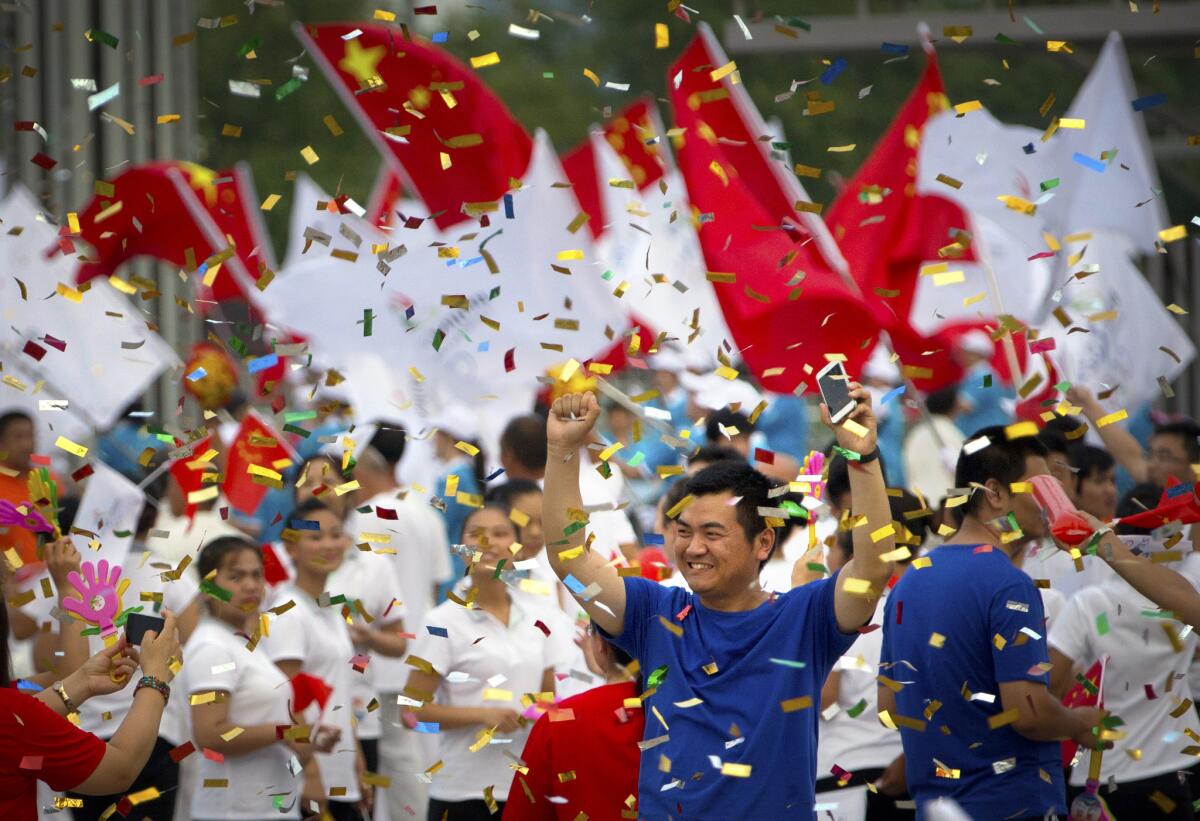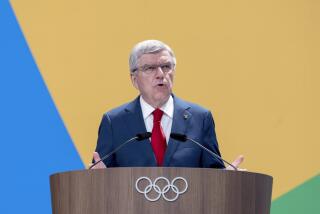Analysis: Beijing clearly the only choice to host 2022 Winter Olympics

Chinese celebrate outside of the Beijing Olympic Stadium following an announcement Friday that Beijing will host the 2022 Winter Olympics.
Call it a game of survival.
Eighteen months ago, no one gave Beijing much of a chance to host the 2022 Winter Olympics. But by the time the International Olympic Committee made its selection on Friday, the Chinese capital had become the clear favorite.
With only two candidates making it to the final vote, Beijing prevailed over Almaty, Kazakhstan, by a slim margin to become the first city chosen to host both the Winter and Summer Games.
Early favorites Oslo and Stockholm were among four European contenders that previously withdrew their bids, scared away by the reported $51 billion Russia spent on and around the 2014 Sochi Olympics.
That left IOC voters with limited options when they met in Kuala Lumpur, Malaysia, this week.
“It was a very difficult decision to make,” IOC President Thomas Bach said.
The Almaty bid team had adopted the slogan “Keeping It Real,” a not-so subtle reminder that its mountains might actually have snowfall in the winter of 2022. Beijing is expected to rely on man-made snow.
But Kazakhstan -- a relatively small nation and a newcomer to the Olympic scene -- seemed like a risky choice.
The Chinese brought a proven track record, not to mention the weight of their economic and political power, to the table.
“Just as with the Beijing 2008 Summer Games, the Olympic family has put its faith in Beijing again to deliver the athlete-centered, sustainable and economical Games we have promised,” the nation’s bid committee said in a statement.
The IOC had two more reasons for voting the way it did.
A return to Beijing offers another chance to promote the Olympic brand to a vast population. And the city can reuse some of its venues from the 2008 Summer Games, including the “Bird’s Nest” stadium, which fits with an IOC effort to make the Olympics more economically feasible.
The selection was not controversy-free.
An electronic malfunction forced Bach to call for a re-vote with paper ballots. More significantly, both nations have been criticized for their human rights records.
The IOC has a nondiscrimination clause in its host city contract but has repeatedly maintained that the provision can only be enforced as it relates directly to the Games.
On Friday, it seemed, the organization was more focused on the logistical aspects of staging one of the world’s largest and grandest sporting events.
“This is really a safe choice,” Bach said “We know China will deliver on its promises.”
MORE OLYMPICS COVERAGE
Would L.A. be better off without the Olympics?
Water pollution at 2016 Summer Olympics remains a concern
Beijing chosen to host 2022 Winter Olympics, angering human rights groups
Follow David Wharton on Twitter @LATimesWharton
More to Read
Go beyond the scoreboard
Get the latest on L.A.'s teams in the daily Sports Report newsletter.
You may occasionally receive promotional content from the Los Angeles Times.











